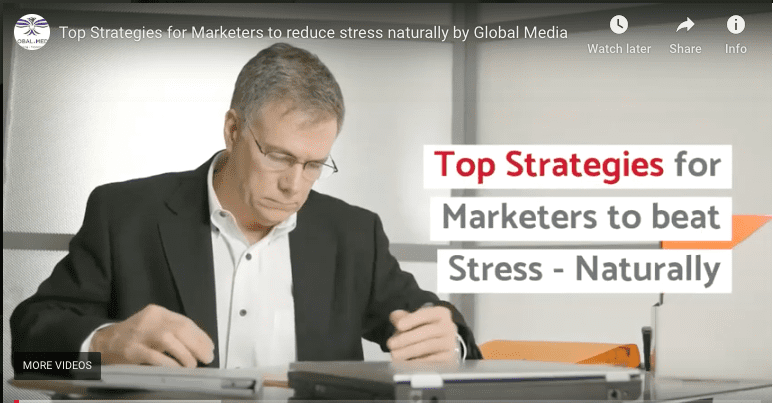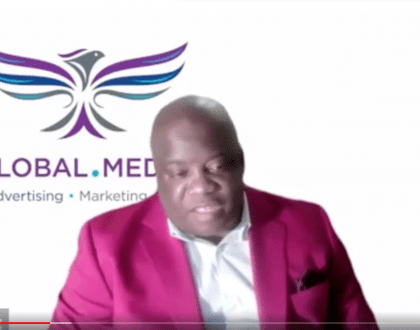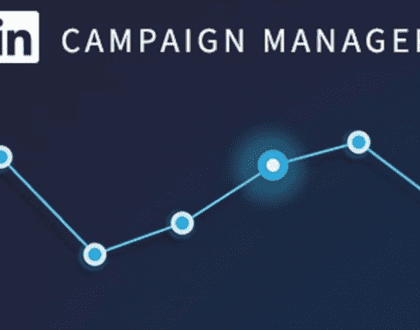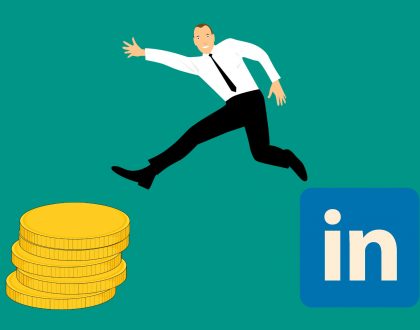Top Strategies for Marketers to beat Stress – Naturally

by EnyOsung
Running a business is one of the hardest things a person will ever do. Marketing is an integral part of making a business sustainable and grow because every business constantly needs clients. This applies to your marketing agency as well as your customers. Clients are the source of revenue to pay the bills, the team and invest in products and services to grow to the next level. However, getting clients is rarely easy as we devise and implement strategies to reach our target market, engage and convert them into paying customers. At the same time, sensible marketers work hard on retaining existing clients and encouraging them to become repeat buyers. The crucial role of marketing places a heavy burden on marketers as they work tirelessly to deliver for their clients as well as build their business.
Startup entrepreneurs and Small business owners and managers will all tell you about the weight they feel on their shoulders virtually every day in business. When you factor in the reality that most of us are burning the candle at both ends – working extraordinarily long hours (80 hours a week on average is standard) 7 days a week, it should come as no surprise that stress and burnout are genuine potential outcomes for Marketing agency entrepreneurs.
Let’s face it, marketers experience never-ending pressures including these:
- Pressure to deliver tangible results
- Always been under scrutiny
- Designing and implementing strategies that may not work.
- Dealing with negative PR and unhappy clients experiences
- Coping with rejection from prospects who do not make a purchase
- Managing a team of people who work under immense pressure
These pressures can easily lead to marketers experiencing stress – defined by MedicineNet as “a physical, mental, or emotional factor that causes bodily or mental tension” Stress can cause or influence the course of many medical conditions including psychological conditions such as depression and anxiety. Medical problems can include poor healing, irritable bowel syndrome, high blood pressure, poorly controlled diabetes and many other conditions.
Global Organisation for Stress tells us that some of the most common words people use to describe stressful experiences include anxiety, burden, pressure, worry, hardship, adversity, trauma, hassle and more.
Learning how to manage stress is a vital quality to maintain a good quality of life and wellbeing, not to mention the ability to continue to be productive in business. You should not be surprised to learn that there is medication that you can take to respond to stress. However, experts warn against the pitfalls of taking meds. Psychology Today cautions that “These anti–anxiety and antidepressant medications are among the most prescribed …and possibly the most dangerous. …people who use anti–anxiety medication have a 36% increased mortality risk. Medical News Today lists several worrying side-effects of anti-anxiety drugs including headaches, memory loss and problems with coordination, balance and speech, among others.
So what can marketers do to tackle stress without resorting to potentially harmful medication? Read on to discover natural strategies that you can use that will reduce your stress levels and improve your wellbeing.
Myths about stress:
There are a few tales that we have heard about stress that I want to dispel and you would benefit from knowing the reality. Here are some:
- The average stress response is flight or fight – when stress really gets you, you can freeze too, as if stuck to the spot. So think of the 3 Fs
- Some stress is good for you – a heightened state of arousal could lead to improved performance, However, no one needs over-the-top levels of stress hormones (cortisol) in their system.
- Alcohol reduces stress – while we may enjoy a drink, alcohol actually increases the stress hormone (cortisol), and you can quickly find yourself in a vicious cycle of drinking because you are stressed and being stressed because you are drinking
So what can you do to reduce stress?
Stress-Reduction Strategies that work
- Get active and exercise – physical activity like exercise can eliminate excessive tension. A workout can also boost your endorphin levels.
- Eat healthier- poor eating like fast foods, increases the risk of depression by 60%. Your food choices can contribute to you feeling easily annoyed and frustrated. Sit down to have healthy meals. Also, keep hydrated by drinking more water.
- Master mindfulness – Techniques like meditation and breathing exercises can help to develop mindfulness and learn to accept negative events objectively.
- Write a journal – putting your thoughts down can help you deal with emotional blockages. It is better than having worrying thoughts going round in your head.
- Listen to music – music is great for reducing your stress hormones. Listening to calming sounds can slow than your heart rate and can normalise your blood pressure.
- Practice Yoga – Yoga is the perfect way to combine two relaxation techniques at once: physical exercise and mindfulness. Even if you are a beginner, practice to develop agility for yoga postures.
- Tidy your environment – keeping your workspace tidy has a positive effect on your mental health because it will give you a sense of comfort and order.
- Turn off your devices – Most people experience increased stress because of the influence of modern devices. So go off-grid (turn off your phone, social media, email and computer) for periods of time to do some quiet reflection.
- Build relationships – socializing and working in a group is a great way to reduce stress, stay motivated and increase your resistance to stress. Take time out with colleagues, friends and your network.
- Enjoy a good laugh – laughing is an exercise in stress reduction and is a great way to stimulate your body and mind. Laughter releases serotonin, which has a positive effect on your mood.
- Get into a book – reading can reduce stress levels by 68% because when you focus on what you are reading, your cortisol level reduces dramatically
Bringing it all together
It is easy to confuse hard work in a business with the symptoms of stress, especially if we are passionate about our work. However, it pays to pay attention to signs that your body is suffering under strain. It is much more pragmatic to take action to look after yourself and spend some time on your self-care before you require medical attention. Marketers are typically able to continue to produce results for their organisation and clients when they are able to practice relaxation strategies such as those we have covered in this post.
*********************************************************************************************************************
Global.Media provides expert online and offline advertising, and marketing on all digital platforms to get qualified leads for businesses. Check out our Services page to see how our advertising and marketing services can help your business to get more customers and sell more, faster. Why not sign up for our newsletter using the simple form on the right? You can also follow us on social networks. Finally, we’d love for you to share this post with your network using the share buttons below.
********************************************************************************************************************
We’d love to have your feedback and suggestions about this post. What is your experience of stress at work? Which strategies have been effective in helping you to continue to do your best work? Please leave your comments in the Comments Section below.
Other posts you may like
12 Biggest Lessons I learned doing Trade Shows
Why A Positive Mindset Matters in LinkedIn Lead Generation
7 Common LinkedIn Marketing Mistakes
–
Our Digital Marketing Services:
Website Design | Search Engine Optimisation (SEO)| LinkedIn Marketing | Content Marketing| Email Marketing| Pay-Per- Click| Social Media Marketing| App Development & Marketing| Business podcasts | Video marketing
HOME | ABOUT | MaAD BLOG | PODCASTS | TESTIMONIALS
Recommended Posts

Eny talks with Lydia on The Joyful Path Podcast
9th December 2022

How to use new LinkedIn Campaign Manager
20th July 2022


